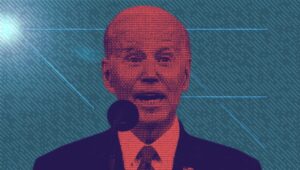A group of individuals injured by COVID-19 vaccines have filed a lawsuit against the Biden Administration over the federal government’s role in pressuring social media companies to censor information that called into question the safety and efficacy of the vaccines.
All of the plaintiffs in the case except one “suffered — and continue to experience — serious and debilitating medical injuries within days (and, in many cases, hours) after taking one of the Covid vaccines,” according to the 124-page lawsuit.
The plaintiff who did not suffer injury had a 16-year-old son who died five days after taking his first dose of the Pfizer Covid vaccine.
All six plaintiffs relied on social media as a means of sharing personal experiences about the harm they suffered due to Covid shots, as well as sharing advice, medical research, and support. Yet, as the suit states, their “use of social media in these ways has been met with heavy and ongoing censorship.”
The group actively used Facebook, Instagram, YouTube, Twitter, TikTok, and GoFundMe and had their content repeatedly flagged as misinformation or removed, while their accounts are “at constant risk of being frozen or disabled.”
Plaintiffs in the suit are represented by the New Civil Liberties Alliance, which represents doctors in similar litigation.
Government using its power to coerce, threaten, or pressure private companies into censoring speech is a violation of the First Amendment of the U.S. Constitution.
Yet, over the past year, the public has learned of efforts by the U.S. government to do exactly that, with one notable example being the Virality Project, which — as journalist Matt Taibbi reported on — worked with the government to launch a monitoring plan for Covid-related content.
The Virality Project “reviewed content on a mass scale for Twitter, Google/YouTube, Facebook/Instagram, Medium, TikTok, and Pinterest,” Taibbi explained, knowingly targeting “true material and legitimate political opinion, while often being factually wrong itself.”
According to Tabbi, the effort “accelerated the evolution of digital censorship, moving it from judging truth/untruth to a new, scarier model, openly focused on political narrative at the expense of fact.”
Censorship efforts surrounding Covid-19 were not limited to the U.S. As Freedom House exposed, 28 countries censored websites or social media posts, 13 countries enacted government-imposed internet shutdowns during the pandemic, 20 countries created new, or expanded existing, laws restricting online speech, and 45 countries arrested or detained internet users for COVID-19-related speech.
Actions the U.S. government encouraged social media companies to take included “imposing warnings or strikes against accounts to chill disfavored speech, ‘shadow banning’ disfavored posts and accounts by making them less visible to other users or not at all, demonetizing content, adjusting algorithms to suppress or de-emphasize speakers or messages, placing warning labels on content, promoting negative comments on disfavored content, and requiring additional clicks to access content,” lawyers argue in the lawsuit.
The suit also claims the U.S. government “coerced, threatened, and pressured social-media platforms to censor disfavored speakers and viewpoints by using threats of adverse government action, including threats of increased regulation, antitrust enforcement or legislation, and repeal or amendment of Section 230 CDA immunity.”
Because of government action, the suit states, the plaintiffs were “deprived of their constitutional rights under the First Amendment: namely, the freedom to both speak and receive speech, and the freedom of expressive association.”

